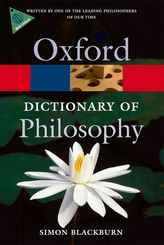Practical Reason
Prof. R. W. Hepburn
The Oxford Companion to Philosophy (2 ed.)

Argument, intelligence, insight, directed to a practical and especially a moral outcome. Historically, a contrast has often been made between theoretical and practical employments of reason. Aristotle's ‘practical syllogism’ concludes in an action rather than in a proposition or a new belief: and phronēsis (see book vi of Nicomachean Ethics) is the ability to use intellect practically. In discussions of motivation, furthermore, appeals to practical reason may seek to counter claims that only desire or inclination can ultimately prompt to action. A measure of disengagement from personal wish and want, a readiness to appraise one's acts by criteria which (rising above individual contingent desire) can be every rational moral agent's criteria, marks a crucial point of insertion of reason into practice. To Kant, the bare notion of being subject to a moral law suffices to indicate how practical reason can operate. Considering any moral policy, ask: Could it consistently function as universal law? The scope of practical reason, however, is much wider than this: practical reasoning must (for example) include the critical comparison and sifting of alleged human goods and ends, and the reflective establishing of their ranking and place in a life plan.
Bibliography
E. Millgram (ed.), Varieties of Practical Reasoning (Cambridge, Mass., 2001).
O. O'Neill, Constructions of Reason (Cambridge, 1989).
Phronēsis
Prof. C. C. W. Taylor.
The Oxford Companion to Philosophy (2 ed.)
Practical wisdom. In ancient Greek the term (frequently interchangeable with sophia) has connotations of intelligence and soundness of judgement, especially in practical contexts. In Aristotle's ethics it is the complete excellence of the practical intellect, the counterpart of sophia in the theoretical sphere, comprising a true conception of the good life and the deliberative excellence necessary to realize that conception in practice via choice (prohairesis).
Bibliography
R. Sorabji, ‘Aristotle on the Rôle of the Intellect in Virtue’, Proceedings of the Aristotelian Society (1973–4); repr. in A. Rorty (ed.), Essays on Aristotle's Ethics (Berkeley, Calif., 1980).
Phronēsis
The Oxford Dictionary of Philosophy (2 rev. ed.) Simon Blackburn
Practical wisdom, or knowledge of the proper ends of life, distinguished by Aristotle from theoretical knowledge and mere means-end reasoning, or craft, and itself a necessary and sufficient condition of virtue.


No comments:
Post a Comment